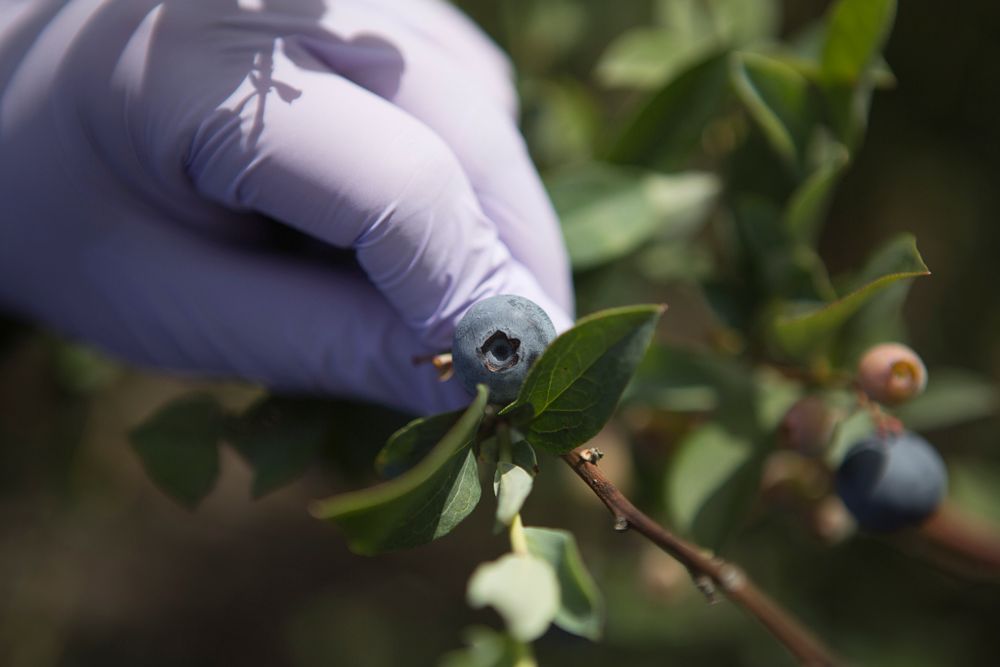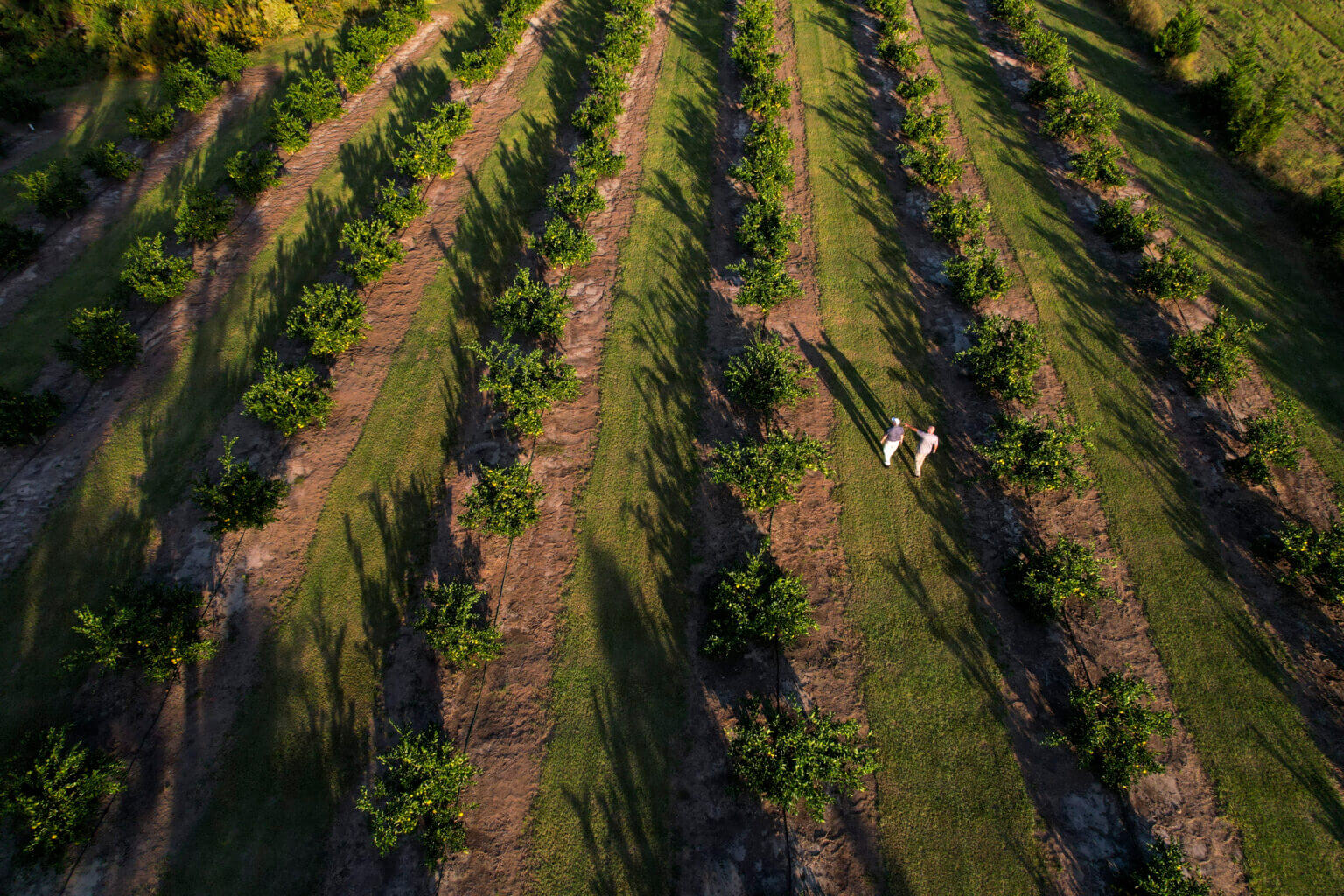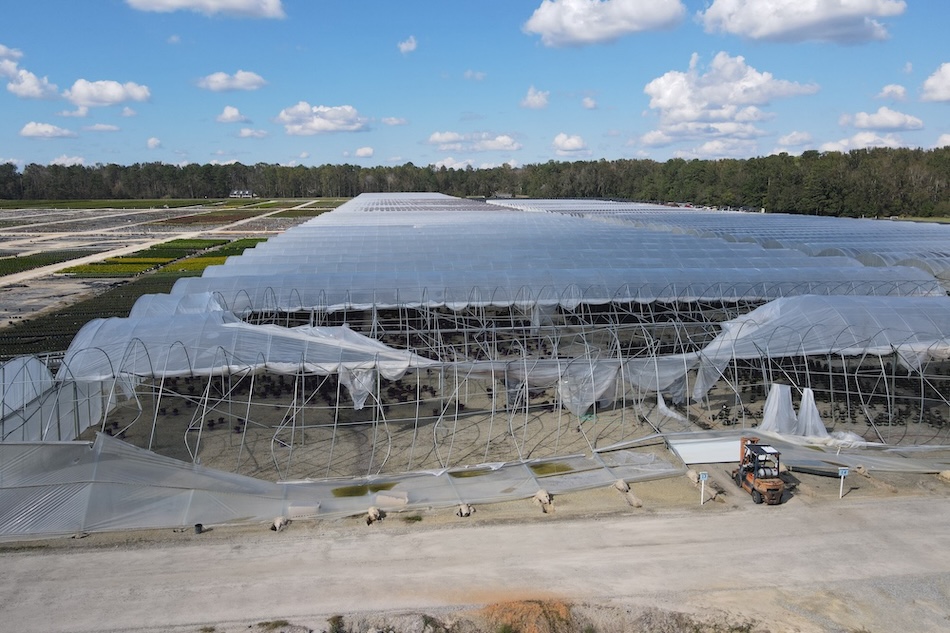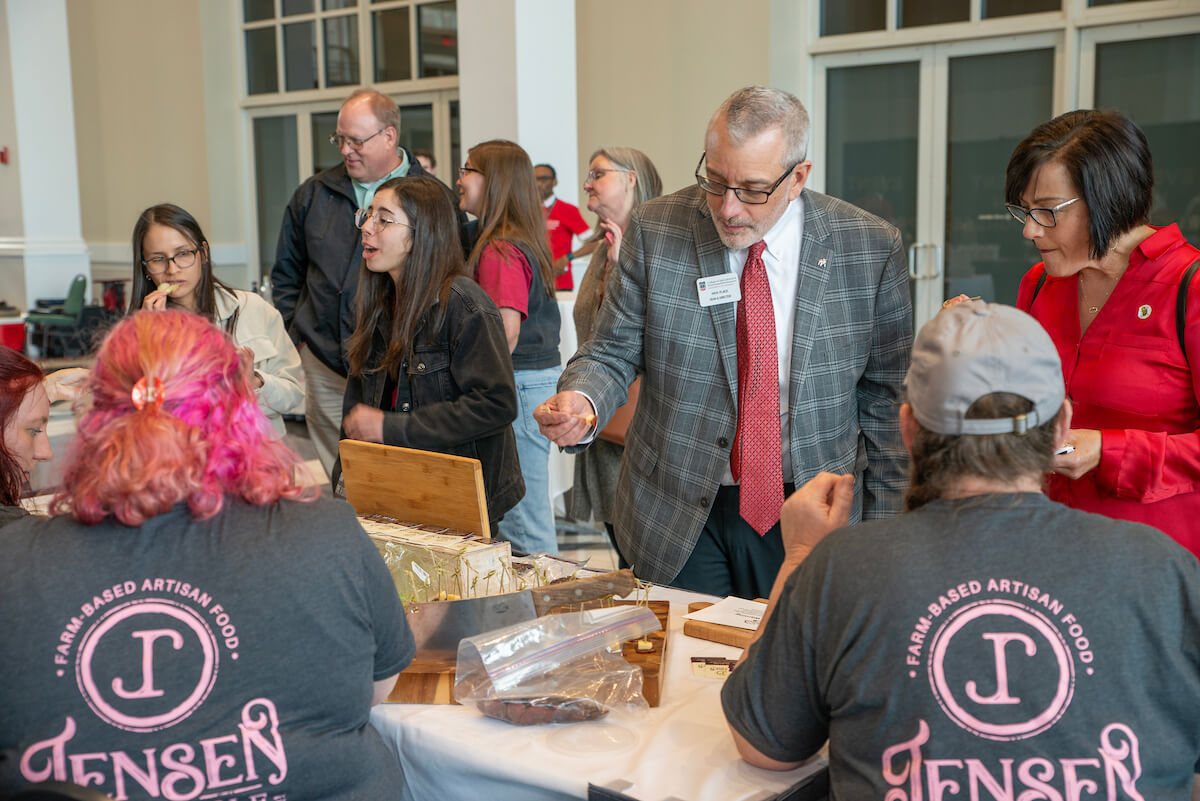
Organic fruits and vegetables often face a higher risk of spoiling and harboring foodborne pathogens than their conventional farming counterparts. Because organic growers and packers must adhere to higher production standards and restrictions on chemical additives, University of Georgia experts are exploring alternative methods for protecting organic products and consumers as part of a new $3.5 million grant from the United States Department of Agriculture.
Faith Critzer and Laurel Dunn, researchers in the College of Agricultural and Environmental Sciences (CAES), will study the use of essential oils for product safety and shelf life extension in organic fruits.
“We're taking a holistic approach. What makes this project so interesting is that we are only working with materials that can be used in organic production,” said Critzer, a professor in the Department of Food Science and Technology. “There are really good options out there for conventional fruit and vegetable production, but organic production has more limitations on what inputs you can use. We see this as an opportunity to explore and find solutions for the organic markets and commodities that we're working with.”
With funding provided to the University of Tennessee, the collaborative USDA Organic Research and Extension Initiative project includes researchers from Virginia Tech, Washington State University, and the University of California, Davis, who will share their own findings.
Critzer and Dunn will test various essential oils as coatings for fruits grown in Georgia, such as cantaloupes and blueberries.
“Most crops naturally have a wax coating, and what we are doing is just adding a bit more to lock in the water in the fruits and reduce dehydration, which would extend the shelf life,” Critzer said. “We are also looking at the antimicrobial properties of different essential oils to help kill foodborne pathogens and organisms that cause spoilage that may be present.”
Critzer and Dunn have been testing food-grade cinnamon bark, clove, peppermint, rosemary and thyme oils to comply with USDA organic standards and working with the concentration levels to ensure the oil coatings are undetectable when consumed.
Consumer interest and demand for organic food have risen drastically in recent years. In 2023, organic food sales totaled $63.8 billion in the U.S., according to the data analytics company Statista. Organic production is on the rise, and this research has the potential to assist with continued growth in the market to meet consumer demands.
“While we have a very safe food supply in the United States, recent outbreaks of foodborne illness associated with fresh produce have made consumers uneasy,” explained Dunn, associate professor and UGA Cooperative Extension coordinator for food science and technology. “Our goal in this project is to provide the organic produce industry with products that can be used to protect consumers and keep them confident in the products they are eating and feeding their families.”
Sustainability is also a key aspect of the study. The practice of organic farming has faced criticism for requiring more land and resources and producing more waste than conventional farming. Critzer and Dunn’s research aims to reduce food waste by improving the shelf life of produce grown in Georgia.
“A lot of fresh food goes to waste simply because spoilage microorganisms are able to eat our produce before we get around to eating it. These coatings could have a big impact on waste reduction by naturally extending the shelf life of our fruits and vegetables,” said Dunn.
Learn more about CAES research to ensure a safer food supply at foodscience.caes.uga.edu/research.






